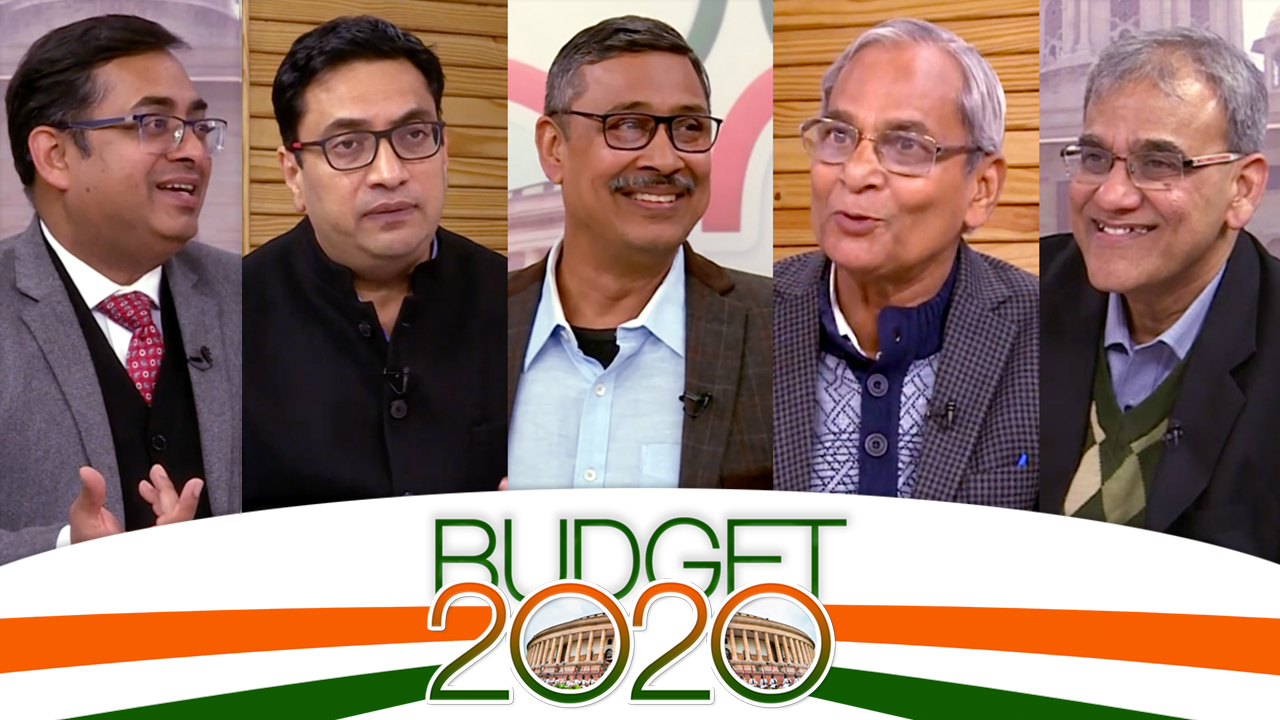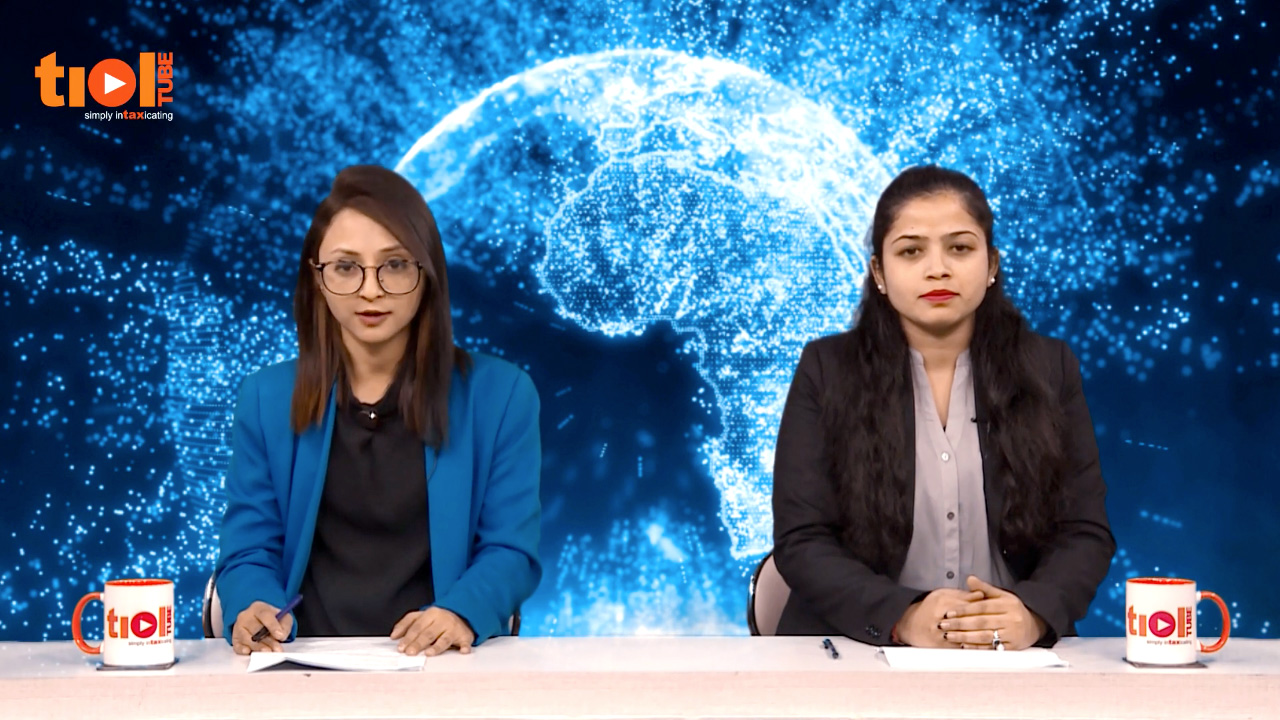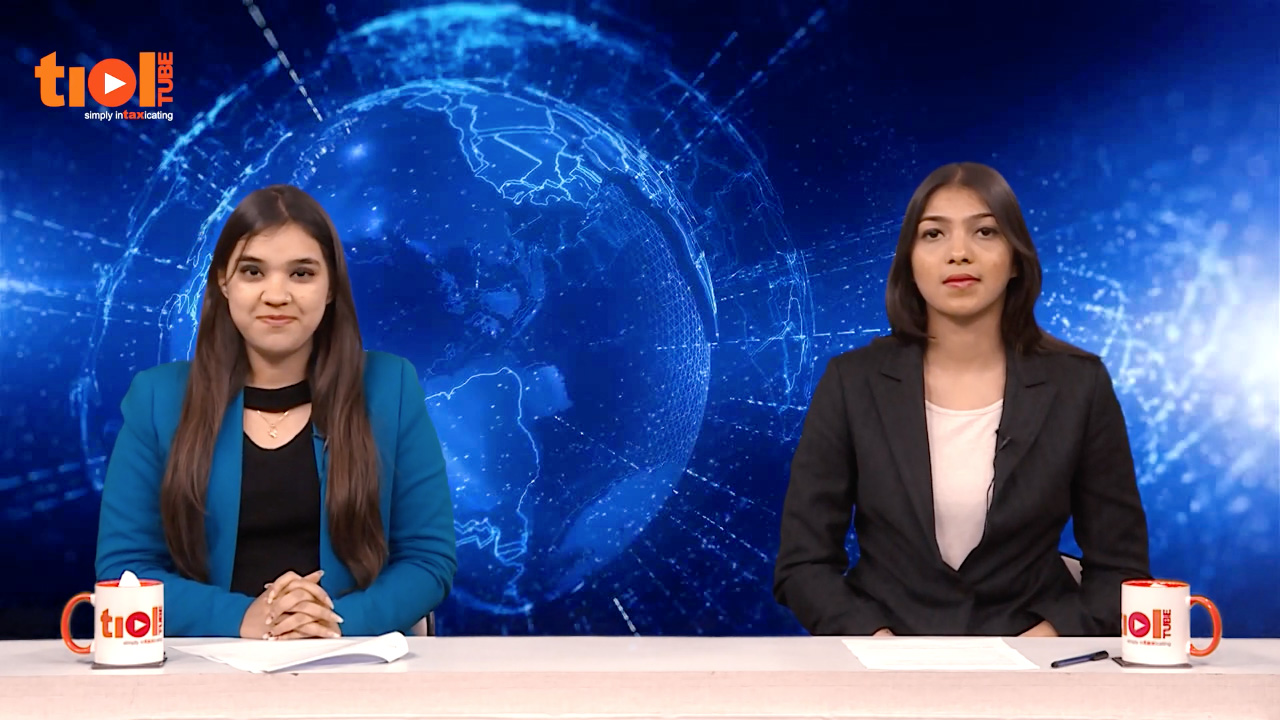2020-TIOL-155-HC-AHM-GST
Paresh Nathalal Chauhan Vs State of Gujarat
GST - Officers staying back at the residence, where the petitioner's mother, wife and young daughter reside, throughout the day and night to find out the whereabouts of the taxable person; recording conversations of family members on mobile phones - officers acting beyond powers vested in s.67(2) - High Court deprecates such conduct in strictest terms and directs the Chief Secretary of State to look into the matter - respondent tendered a report of inquiry made by Chief Commissioner of State Tax - Upon perusal of report, it emerged that it was no better than the earlier report dated 20.10.2019 submitted by Assistant Commissioner of State Tax, and did not meet with the directions issued by the Court in letter and spirit - It appeared that the Chief Commissioner of G.S.T. had taken a very lenient view in the matter and instead of examining the action of the officers concerned in the context of the relevant provisions of Goods & Services Tax Act, had tried to justify the action of the officers concerned, which is required to be deprecated in the strictest terms - The respondent prayed for time to submit another report and accordingly the the matter was adjourned - Accordingly, a report was submitted on 19.12.2019 by the Chief Commissioner of State Tax, Gujarat State and the matter was heard - High Court observed that the manner in which the search had taken place, whereby a search for any goods liable to confiscation or any documents or books or things, has literally been converted to a search for the taxable person and the search party has camped in the residential premises of the petitioner for in all eight days, during which period the family members of the petitioner were at the mercy of the authorised officer and were confined to the searched premises and kept under surveillance and were not permitted to leave the premises without the permission of the authorised officer, has shocked the conscience of this court; that, therefore, High Court is of the view that it would be failing in its duty as a sentinel on the qui vive if it were to turn a blind eye to the violation of the legal and fundamental rights of citizens by authoritarianism and remain a mute spectator - High Court has, therefore, thought it fit to comment upon the validity and nature of the search proceedings.
Held:
++ The entire action of the search party after the first day, i.e. from 12.10.2019 to 18.10.2019, was illegal, invalid and not backed by any provision of the GST Acts - The only reason why the search party remained back appears to be to intimidate the family members of the petitioner to extract information about the petitioner or records of his business, and to either coerce the petitioner to return home or to apprehend him if he returns home.
++ From the facts recorded in the panchnama, it is abundantly clear that while the authorisation issued to the officer concerned was to search the premises mentioned in the authorisation, the entire search was converted to a search for the dealer, namely the petitioner herein.
++ Admittedly, no summons was issued to the petitioner under section 70 of the GST Acts nor is it the case of the respondents that he was summoned, but had not remained present - While the petitioner was not present at the premises when searched, there could be a reasonable explanation for his absence - Moreover, even if the petitioner may have been intentionally avoiding the authorities, the same is not a valid ground for converting the search proceedings to a search for the petitioner, more so, when no such power is vested in the authorities.
++ Moreover, as is evident from the contents of the panchnama, the members of the petitioner's family were literally under house arrest and were not permitted to leave the premises without the permission of the authorised officer and at times without being escorted by a member of the search party.
++ It may be noted that there is no provision under the GST Acts which empowers the authorised officer to confine family members of a dealer in this manner and to interrogate them at all times of the day and even late at night as has been done in this case.
++ Apart from the illegality of the continuation of the search proceedings, the conduct of the search officers in confining the family members of the petitioner to the house and of interrogating them time and again is nothing but a blatant abuse of powers.
++ Since, the continued stay at the premises of the petitioner after 11 th October, 2019 was not for search of the premises but to search for the petitioner and to obtain further information about where else he could have secreted documents, books or things relevant for any proceedings under the GST Acts, such continued stay was totally unauthorised as it was not backed by any statutory provision.
++ Powers conferred by subsection (2) of section 67 of the GST Acts is to search for goods liable to confiscation, documents, books or things which in the opinion of the proper officer shall be useful for or relevant to any proceedings under that Act.
++ Section 348 of the Indian Penal Code provides that whoever wrongfully confines any person for the purpose of extorting from the person confined or any person interested in the person confined, any confession or any information which may lead to the detection of an offence or misconduct or for the purpose of constraining the person confined or any person interested in the person confined to restore or to cause the restoration of any property or valuable security or to satisfy any claim or demand or to give information which may lead to the restoration of any property or valuable security, shall be punished with imprisonment of either description for a term which may extend to three years and shall also be liable to fine.
++ Unauthorised action of the concerned officers may tantamount to an offence under the Indian Penal Code; what is not permissible in law cannot be done under the guise of discharge of statutory functions. Action of the respondents cannot be countenanced.
++ GST Acts are new enactments. Officers acting under the relevant provisions are required to study the scope of their powers under the statutory provisions under which they are acting and cannot act on the basis of presumptions or past precedents under a previous enactment. If the common man is supposed to know the law and face penalty for any infraction thereof, the officers enforcing such provisions are required to be well versed with the statutory provisions and the scope and limits of their power and cannot take shelter behind ignorance of law to justify their illegal actions.
++ It appears that the idea behind taking assistance of the SRP constable appears to be to intimidate and shame the family members, more so, in view of the prolonged presence of the search party at the residential premises of the petitioner.
++ It may be noted that even the police, during the course of investigation, do not have the powers to reside at any residential premise and the officer concerned is required to carry out investigation and thereafter, leave the premises. The action of the respondents in continuing to reside at the residential premises of the petitioner without any valid reason despite the fact that search was concluded is unwarranted and uncalled for. It may be that ultimately, the respondents might have been able to extract some material from the conversation recorded in the mobile phone regarding where some books of account and other documents were secreted, but the end does not justify the means and does not validate the unauthorised and illegal action of the concerned officers.
++ Stand of the Chief Commissioner in the report is that in view of past precedent under the Gujarat Value Added Tax Act, 2003, the officers under the GST Acts have recorded statements of the family members of the petitioner.
++ Chief Commissioner has placed reliance upon the provisions of section 88 of the Gujarat Value Added Tax Act, 2003 which relates to authorisation to investigate; overlooking the fact that in the present case the authorisation was for search and seizure and not investigation inasmuch as recording of statements under section 161 of the Code finds place in Chapter XII thereof which pertains to “Information to the police and their powers to investigate” and not under the provisions of the Code relating to search and seizure.
++ One fails to understand as to what the officers concerned were doing at the residential premises of the petitioner for a whole week, along with two panchas and an SRP Constable when the search was concluded on day one. Such action on the part of the respondents is abhorrent and cannot be countenanced. No provision of the Code of Criminal Procedure, for investigation, search or seizure, empowers a police officer to remain a moment longer at any premises once the search is over.
++ In the facts of the present case, the power under subsection (2) of section 67 of the GST Acts has not only not been exercised strictly in accordance with law, but has also not been exercised for the purposes for which the law authorises it to be exercised, namely that though the power was to be exercised for carrying out search and seizure of goods liable to confiscation, documents, books or things at the place in respect of which the authorisation of search was given, the search was converted to a search for the dealer and into an investigation to find out other places where documents, books or things could have been secreted, which was beyond the scope of the powers vested in the authorised officer.
++ It is a matter of deep regret that the Chief Commissioner of State Tax has attempted to justify such wrongful action on the part of the officers of the department by placing reliance upon the provisions relating to power of investigation under an earlier enactment to justify the actions of the concerned officers who were exercising powers of search and seizure under section 67(2) of the GST Acts.
++ One would expect the higher officer to reprimand the subordinate officers for their unauthorised actions. But in this case, the higher ups, for reasons best known to them are trying to shield the actions of the subordinate officers though they are not in a position to show the relevant provisions of law under which such officers were empowered to act in this manner. All that the court can say at this stage is that the reports submitted of the Chief Commissioner in response to the orders dated 25.10.2019 and 20.11.2019, do not meet with the standards expected from an authority of his stature.
++ Lastly, the court may sound a word of caution to the authorities exercising powers under the GST Acts. Subsection (2) of section 157 of the GST Acts says that no suit, prosecution or other legal proceedings shall lie against any officer appointed or authorised under the Act for anything which is done or intended to be done in good faith under the Act or the rules made thereunder. An action like the present one which is not contemplated under any statutory provision and which infringes the fundamental rights of citizens under article 21 of the Constitution of India may not be protected under this section. An action taken may be said to be in good faith if the officer is otherwise so empowered and he exceeds the scope of his authority. However, in a case like the present one where the authorisation was for search and seizure of goods liable to confiscation, documents, books or things and the concerned officer converted it into a search for a person and an investigation, which is not otherwise backed by any statutory provision, it may be difficult to accept that such action was in good faith. Protection of such action under section 157 of the GST Acts may unleash a regime of terror insofar as the taxable persons are concerned.
++ It is clarified that this court does not condone any alleged illegal acts on the part of the petitioner and in case he has indulged in any illegalities, the law should take its own course.
++ However, the court found it necessary to pass the present order to curb any further abuse of powers in this manner by the authorities under the GST Acts.
++ Matter to be listed for hearing on merits on 23.01.2020.
[para 18 to 23, 25, 27 to 29, 31]
- Matter listed:
GUJARAT
HIGH COURT









